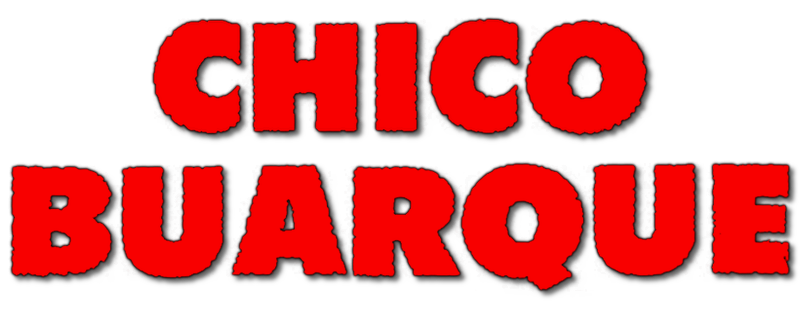Album Releases  view
view
Members
 1 Male
1 Male
Origin
 Rio de Janeiro, Brazil
Rio de Janeiro, Brazil
Genre
---
Style
---
Mood
---
Born
Origin
Genre
---
Style
---
Mood
---
Born
![]() 1944
1944
Active![]() 1962 to Present...
1962 to Present...
Cutout![]()
Alternate Name
Francisco Buarque de Hollanda
4 users
4 users
4 users
4 users
4 users
Artist Biography
Available in:
Francisco "Chico" Buarque de Hollanda (born June 19, 1944 in Rio de Janeiro, Brazil), popularly known as Chico Buarque, is a singer, guitarist, composer, dramatist, writer and poet. He is best known for his music, which often includes social, economic and cultural commentary on Brazil and Rio de Janeiro in particular.
Son of the academic Sérgio Buarque de Hollanda, Buarque lived in several locations throughout his childhood, though mostly in Rio de Janeiro, São Paulo and Italy. He wrote and studied literature as a child and came to music through the bossa nova compositions of Tom Jobim and João Gilberto. He performed music throughout the 1960s as well as writing a play that was deemed dangerous by the Brazilian military dictatorship of the time. Buarque, along with several of his fellow musicians, were threatened by the government and eventually left Brazil in 1970. He moved to Italy again. However, he came back to Brazil in 1971, one year before the others, and continued to record albums, perform, and write, though much of his material was not allowed by government censors. He released several more albums in the 1980s and published three novels in the 1990s and 2000s, all of which were acclaimed critically.
Buarque came from an intellectually privileged family background—his father Sérgio Buarque de Holanda was a well-known historian, sociologist and journalist and his mother Maria Amélia Cesário Alvim was a painter and pianist. He is also brother of the singer Miúcha and politician Ana de Hollanda. As a child, he was impressed by the musical style of bossa nova, specifically the work of Tom Jobim and João Gilberto. He was also interested in writing, composing his first short story at 18 years old and studying European literature, also at a young age. One of his most consuming interests, however, was playing soccer, beginning at age four, which he still does today. Though he was born in Rio de Janeiro, Buarque spent much of his childhood in Rio de Janeiro, São Paulo and Italy.
Before becoming a musician, Buarque decided at one point to study architecture at the University of São Paulo, but this choice did not lead to a career in that field; for Buarque often skipped classes.
He made his public debut as musician and composer in 1964, rapidly building his reputation at music festivals and television variety shows when bossa nova rhythm came to light and Nara Leão recorded three of his songs. His eponymous debut album exemplified his future work, with catchy sambas characterized by inventive wordplay and an undercurrent of nostalgic tragedy. Buarque had his first hit with "A Banda" in 1966, written about a marching band, and soon released several more singles. Although playing bossa nova, during his career, samba and Música Popular Brasileira would also be widely explored. Despite that, Buarque was criticized by two of the leading musicians at the time, Caetano Veloso and Gilberto Gil as they believed his musical style was overly conservative. However, an existentially themed play that Buarque wrote and composed in 1968, Roda Viva ("Live Circle"), was frowned upon by the military government and Buarque served a short prison sentence because of it. He left Brazil for Italy for 18 months in 1970, returning to write his first novel in 1972, which was not targeted by censors.
At this time his thinly veiled protest single "Apesar de Você" ("In spite of You" – in reference to the military dictatorship) was also produced. ("In spite of you") was overlooked by the military censors, becoming an important anthem in the democratic movement. After selling over 100,000 copies, the single was eventually censored and removed from the market. At one point in 1974, the censors banned any song authored by Chico Buarque. Then, he created a pseudonym, naming himself "Julinho da Adelaide", complete with life history and interviews to newspapers. "Julinho da Adelaide" authored songs such as "Jorge Maravilha" and "Acorda amor" before he was outed in Jornal do Brasil news story. Buarque also wrote a play named Calabar, about the Dutch invasion of Brazil in the seventeenth century, drawing parallels with the military regime. Despite the censorship, songs such as "Samba de Orly" (1970), "Acorda amor" (1974, as "Julinho da Adelaide") manifested Buarque's continuing opposition to the military regime.
During the 1970s and 1980s, he collaborated with filmmakers, playwrights, and musicians in further protest works against the dictatorship. Buarque approached the 1983 Concert for Peace in Nicaragua as a valid forum to vocalize his strong political views. Throughout the decade, he crafted many of his songs as vehicles to describe the re-democratization of Brazil. The Concert for Peace in Nicaragua was one in a concert series known as the "Central American Peace Concerts." These concerts featured various Latin American artists. The political turmoil that plagued this era were expressed in many of Buarque's songs. He later wrote Budapeste, a novel that achieved critical national acclaim and won the Prêmio Jabuti, a Brazilian literary award comparable to the Man Booker Prize.
Wide Thumb
Clearart
Fanart




Banner

User Comments
 No comments yet..
No comments yet..

 70%
70%























